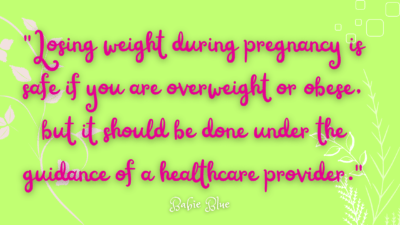
Pregnancy Calorie Deficit Calculator: How to Stay Healthy and Fit During Pregnancy
Table of Contents
Pregnancy Calorie Deficit Calculator
If you are trying to lose weight, you have probably heard about the importance of a calorie deficit. Simply put, it means consuming fewer calories than your body burns, leading to weight loss. But how do you determine the right amount of calorie deficit for your body? This is where a calorie deficit calculator comes in handy. In this article, we will discuss what a calorie deficit calculator is, how to use it, and other important factors to consider for effective weight loss.
What is a calorie deficit calculator?
A calorie deficit calculator is a tool that helps you determine the number of calories you need to consume to lose weight based on your current weight, height, age, and activity level. It calculates the number of calories you should eat per day to create a calorie deficit, which is necessary for weight loss.
How to calculate your calorie deficit?
To calculate your calorie deficit, you first need to determine your basal metabolic rate (BMR), which is the number of calories your body burns at rest. You can calculate your BMR using various formulas available online or consult a healthcare professional for a more accurate measurement.
Once you know your BMR, you need to factor in your activity level to determine your total daily energy expenditure (TDEE), which is the number of calories your body burns daily. You can use a calorie deficit calculator that takes into account your BMR, activity level, and weight loss goals to determine the number of calories you need to consume to create a calorie deficit.

Factors that impact your calorie deficit
Several factors can impact the number of calories you need to consume to create a calorie deficit, including:
Age
As you age, your BMR decreases, which means your body burns fewer calories at rest. Therefore, older individuals may need to consume fewer calories to create a calorie deficit.
Gender
Men generally have a higher muscle mass and a higher BMR than women, which means they burn more calories at rest. Therefore, men may need to consume more calories to create a calorie deficit.
Height and weight
Taller and heavier individuals generally have a higher BMR and TDEE, which means they burn more calories at rest and during physical activity. Therefore, they may need to consume more calories to create a calorie deficit.
Activity level
Individuals who engage in regular physical activity burn more calories and have a higher TDEE than sedentary individuals. Therefore, they may be able to consume more calories while still creating a calorie deficit.
How to use a calorie deficit calculator for weight loss
Using a calorie deficit calculator is a straightforward process, but there are a few things to keep in mind to make it effective:
Setting a realistic goal
Setting a realistic weight loss goal is crucial for successful weight loss. A calorie deficit of 500-1000 calories per day is generally considered safe and effective for losing 1-2 pounds per week. However, it is important to consult a healthcare professional before starting any weight loss program.
Tracking your calories and progress
Once you have determined your calorie deficit, the next step is to track your calories and progress. You can use various apps and websites to track your daily calorie intake and physical activity. Regular tracking helps you stay on track with your weight loss goals and make adjustments as needed.
Adjusting your calorie deficit as needed
As you lose weight, your calorie deficit needs may change. It is essential to re-calculate your calorie deficit every few weeks to ensure you are still creating a calorie deficit and making progress towards your weight loss goals.
Tips for maintaining a calorie deficit
Maintaining a calorie deficit can be challenging, but these tips can help make it easier:
Choosing nutrient-dense foods
Choosing foods that are high in nutrients but low in calories can help you feel full and satisfied while still creating a calorie deficit. Examples of nutrient-dense foods include fruits, vegetables, whole grains, lean proteins, and healthy fats.
Staying hydrated
Drinking enough water can help you stay hydrated and feel full, reducing your chances of overeating. Aim to drink at least 8-10 glasses of water per day.
Incorporating physical activity
Regular physical activity can help you burn more calories and increase your TDEE, making it easier to maintain a calorie deficit. Aim for at least 150 minutes of moderate-intensity exercise per week.

Calorie Deficit Calculator in Pregnancy
Pregnancy is an exciting and transformative experience, but it can also be challenging. As your body changes to accommodate your growing baby, it's important to maintain a healthy weight to avoid complications and ensure a healthy pregnancy. One way to achieve this is by using a calorie deficit calculator in pregnancy. In this article, we will discuss why maintaining a healthy weight is important during pregnancy, what a calorie deficit calculator is, how to use it, and other tips for staying healthy and fit during pregnancy.
Why Is Maintaining a Healthy Weight Important During Pregnancy?
Maintaining a healthy weight during pregnancy is crucial for several reasons. Firstly, it reduces the risk of complications such as gestational diabetes, preeclampsia, and preterm birth. Secondly, it eases the labor and delivery process, making it easier for both you and your baby. Lastly, it can improve the baby's health, reducing the risk of certain birth defects and ensuring a healthy birth weight.
What Is a Calorie Deficit Calculator in Pregnancy?
A calorie deficit calculator in pregnancy is a tool that helps you determine how many calories you should consume to maintain a healthy weight during pregnancy. It takes into account your pre-pregnancy weight, age, activity level, and other factors to calculate your daily calorie intake. By maintaining a calorie deficit, you can safely lose weight during pregnancy, which is recommended for overweight or obese women.
How to Use a Calorie Deficit Calculator in Pregnancy?
Using a calorie deficit calculator in pregnancy is relatively simple. Firstly, you need to calculate your basal metabolic rate (BMR), which is the number of calories your body burns at rest. This can be done using an online BMR calculator or consulting a healthcare provider. Secondly, you need to account for physical activity, which increases your daily calorie needs. Lastly, you need to adjust for pregnancy, which requires additional calories to support the growing baby. A calorie deficit of 300-500 calories per day is recommended for most pregnant women.
How Many Calories Should You Consume During Pregnancy?
The number of calories you should consume during pregnancy depends on several factors, including your pre-pregnancy weight, age, activity level, and the stage of pregnancy. In general, women who are of normal weight before pregnancy should consume an extra 300 calories per day during the second and third trimesters. Women who are underweight before pregnancy should consume an extra 500 calories per day, while women who are overweight or obese should aim for a modest weight loss of 0.5-2 pounds per week.
What Foods Should You Eat During Pregnancy?
Eating a balanced diet that includes a variety of foods is important during pregnancy. You should aim for a diet that includes protein, complex carbohydrates, healthy fats, and plenty of fruits and vegetables. You should also avoid foods that are high in sugar, fat, and salt, as well as alcohol and caffeine. It's important to consult with a healthcare provider or a registered dietitian to ensure that your diet meets your individual needs.
How Much Exercise Should You Do During Pregnancy?
Exercise during pregnancy is safe and beneficial for most women, but it's important to consult with a healthcare provider before starting a new exercise routine. The American College of Obstetricians and Gynecologists recommends that pregnant women aim for at least 150 minutes of moderate-intensity aerobic exercise per week. Suitable exercises for pregnant women include walking, swimming, prenatal yoga, and low-impact aerobics. It's important to take precautions to avoid injury, such as staying hydrated, wearing supportive shoes, and avoiding high-impact exercises.
Conclusion
Maintaining a healthy weight during pregnancy is crucial for the health of both the mother and the baby. Using a calorie deficit calculator in pregnancy can help women determine how many calories they should consume to achieve a healthy weight during pregnancy. By combining a healthy diet with regular exercise, women can stay fit and healthy during pregnancy, reducing the risk of complications and ensuring a healthy birth. It's important to consult with a healthcare provider or a registered dietitian to ensure that your diet and exercise routine meet your individual needs. Remember, a healthy pregnancy is a happy pregnancy!
FAQ's
Is It Safe to Lose Weight During Pregnancy?
Losing weight during pregnancy is safe if you are overweight or obese, but it should be done under the guidance of a healthcare provider. Women who are underweight or of normal weight should aim to gain weight during pregnancy.
How Do I Know If I Am Consuming Enough Calories During Pregnancy?
You can use a calorie deficit calculator in pregnancy to determine how many calories you should consume each day. It's also important to listen to your body and eat when you are hungry. If you experience symptoms such as dizziness, weakness, or fatigue, it may be a sign that you need to eat more.
Can I Continue My Exercise Routine During Pregnancy?
In most cases, it's safe to continue your exercise routine during pregnancy as long as it's low-impact and doesn't put you at risk of injury. However, it's important to consult with a healthcare provider before starting any new exercise routine.
What Foods Should I Avoid During Pregnancy?
You should avoid foods that are high in sugar, fat, and salt, as well as alcohol and caffeine. You should also avoid certain types of fish that are high in mercury, such as shark, swordfish, king mackerel, and tilefish.
How Can I Ensure That I Am Getting Enough Nutrients During Pregnancy?
Eating a balanced diet that includes a variety of foods is important during pregnancy. You should aim for a diet that includes protein, complex carbohydrates, healthy fats, and plenty of fruits and vegetables. You can also take a prenatal vitamin to ensure that you are getting enough of the essential nutrients your body needs.
Can I Use a Calorie Deficit Calculator If I Am Expecting Twins or Multiples?
If you are expecting twins or multiples, you may need to consume more calories than a calculator suggests. It's important to consult with a healthcare provider or a registered dietitian to determine how many calories you should consume each day.
Is It Safe to Exercise During the First Trimester?
In most cases, it's safe to exercise during the first trimester as long as it's low-impact and doesn't put you at risk of injury. However, it's important to consult with a healthcare provider before starting any new exercise routine. If you experience symptoms such as nausea, dizziness, or fatigue, you may need to adjust your exercise routine.
Can I Still Use a Calorie Deficit Calculator if I Have Gestational Diabetes?
If you have gestational diabetes, you may need to follow a special diet to manage your blood sugar levels. It's important to work with a healthcare provider or a registered dietitian to determine how many calories you should consume each day and what types of foods you should eat.
You must be logged in to post a comment.